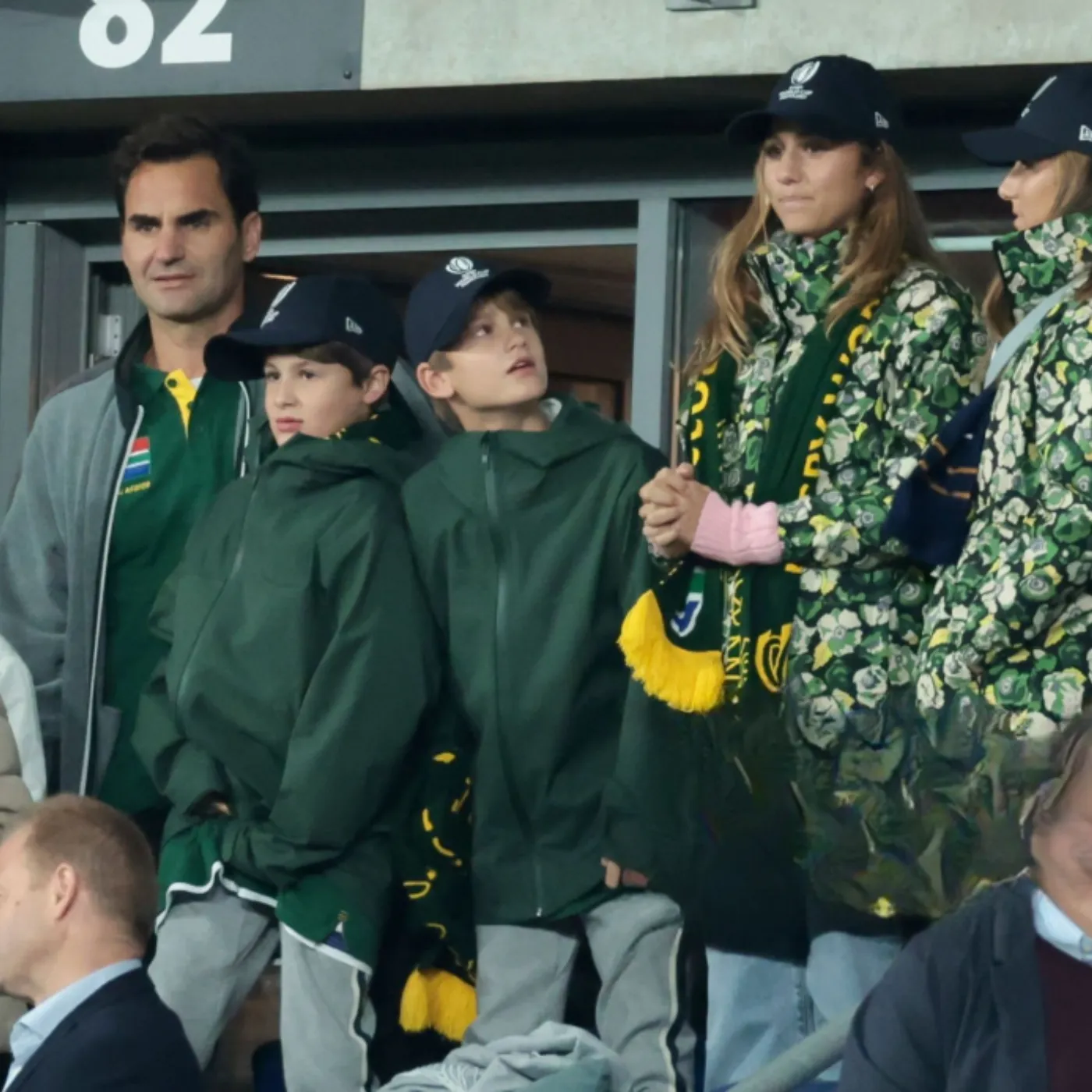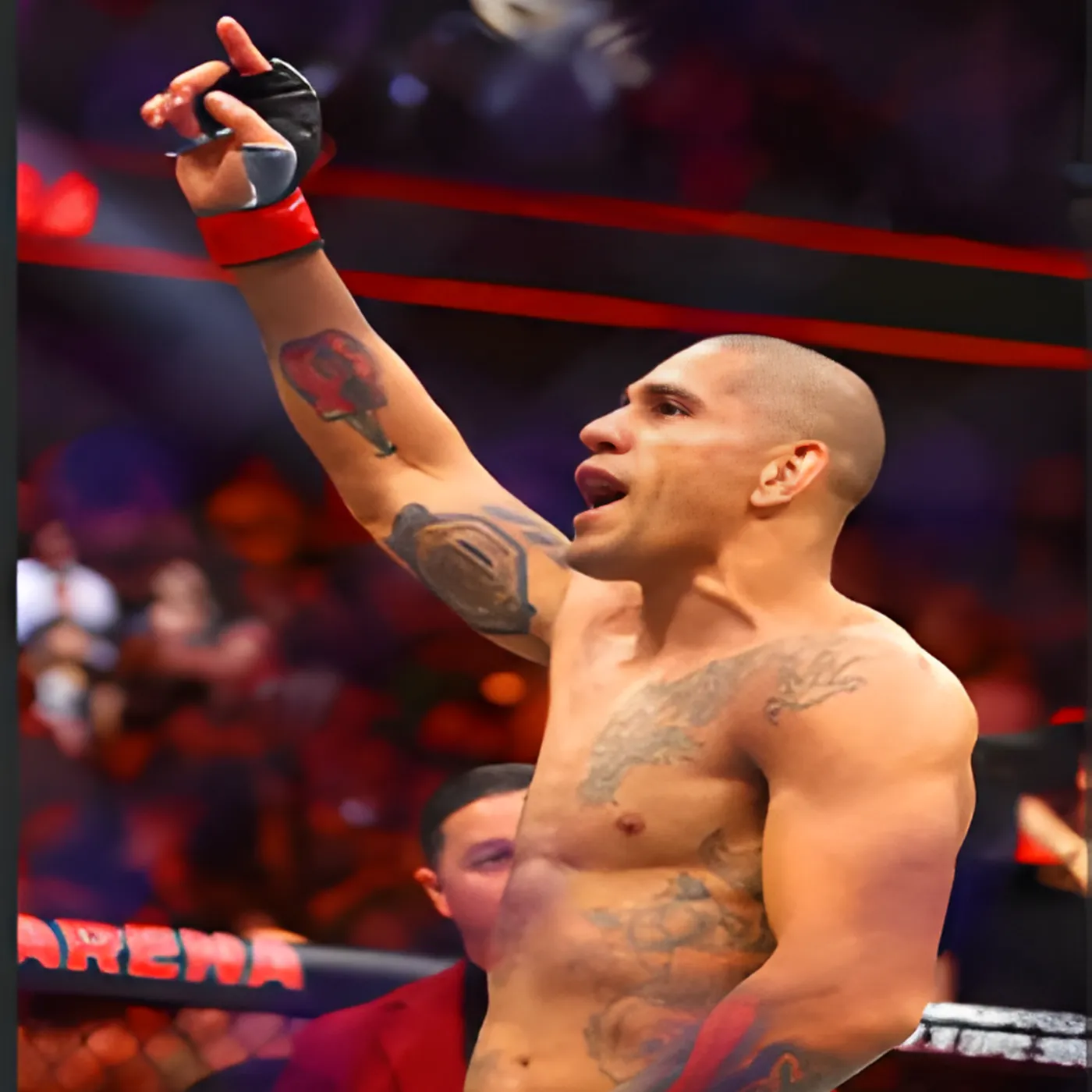
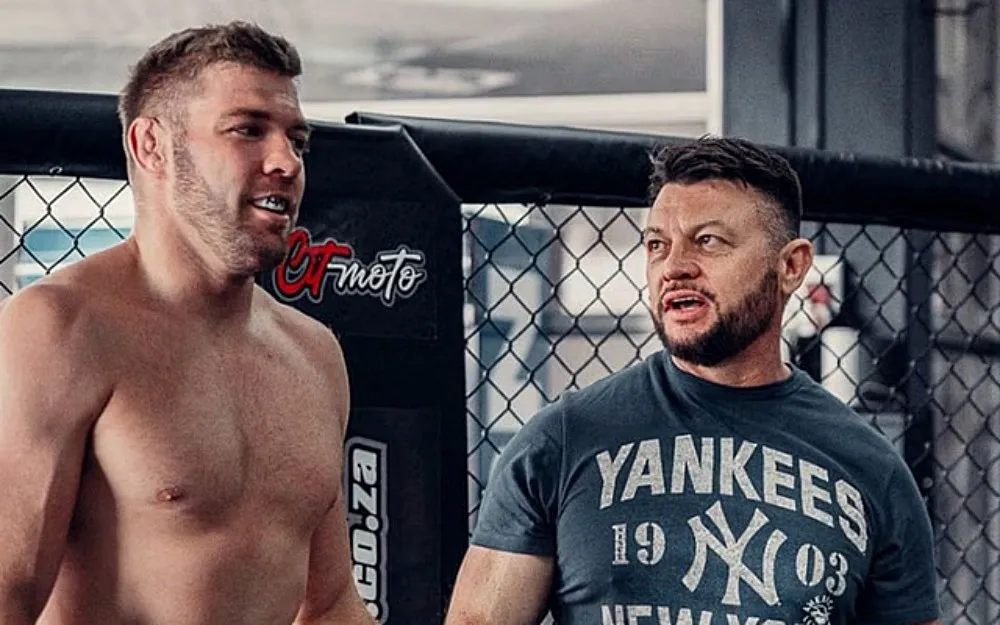
Dricus Du Plessis and the shady relationship with the new coach: What scandal is hiding in the UFC cage?
The world of mixed martial arts (MMA) is no stranger to controversy, but few stories have sparked as much debate as the recent scandal surrounding UFC middleweight champion Dricus Du Plessis and his new coach, Morne Visser. Reports have emerged about the extreme and unconventional training methods employed in Du Plessis’ camp, raising serious ethical questions about fighter safety, coaching standards, and the impact on the South African fighter’s legacy.
With MMA fans and experts divided over whether these methods are a necessary evil or outright abusive, the question remains: Is Du Plessis unknowingly jeopardizing his career by aligning himself with a coach whose practices push the limits of acceptable training?
The Controversy: A Shocking Training Method
The heart of this controversy lies in the training techniques reportedly used by Morne Visser, a relatively unknown but now infamous figure in the MMA coaching world. According to sources close to the camp, Visser has adopted a method where he uses a stun gun—or “training correction tool,” as he calls it—to deliver electric shocks to fighters who fail to execute techniques correctly.
This revelation came to light through leaked behind-the-scenes footage from a closed training session, showing Visser zapping a fighter after a poorly executed striking combination. The footage quickly went viral, igniting an outpouring of backlash from fighters, trainers, and fans alike.
In response to the criticism, Visser defended his methods, stating:
“This isn’t about punishment. It’s about immediate correction. The brain learns fastest when there’s a consequence to mistakes. If they want to be the best, they have to be pushed beyond their limits.”
His statements did little to calm the storm. Many in the MMA community have labeled his approach as borderline abuse, questioning whether such extreme measures have any place in professional sports.
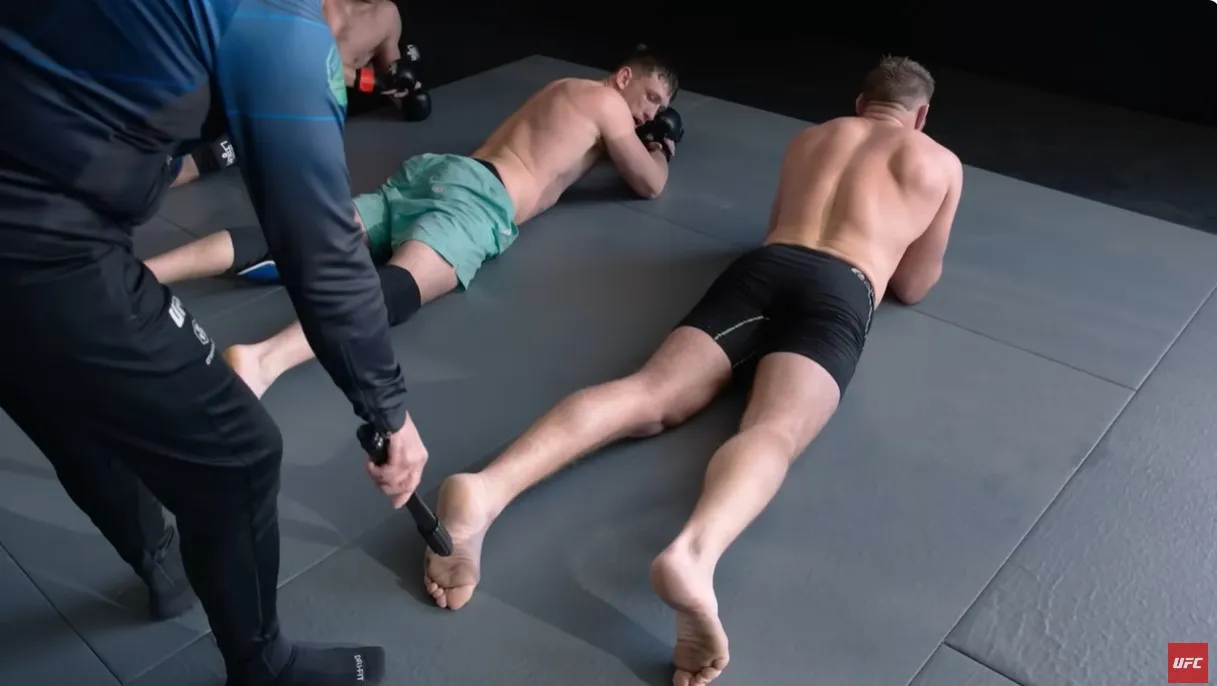
Dricus Du Plessis’ Stance: Loyalty or Blind Faith?
Dricus Du Plessis, known for his grit and relentless fighting style, has found himself at the center of this debate—not as the alleged victim, but as one of the staunchest defenders of his coach. The UFC champion dismissed concerns, stating that Visser’s training methods have been instrumental in his rise to the top.
“I’ve never felt more prepared in my life. People can say what they want, but the results speak for themselves. If it works, it works.”
This unwavering support has left many questioning whether Du Plessis is too deep in his camp’s philosophy to recognize potential long-term harm. While the fighter’s loyalty to his coach is admirable, some believe it may come at the cost of his health, reputation, and future opportunities.
The UFC has remained silent on the issue so far, but if public pressure mounts, the promotion may be forced to intervene. With the organization’s growing emphasis on fighter safety, it’s possible that Du Plessis could face consequences for defending such a polarizing figure.
Comparing Training Philosophies: Science vs. Extremism
In professional combat sports, training intensity is nothing new. Fighters push their bodies to the absolute limit, enduring brutal conditioning regimens designed to simulate the realities of war inside the octagon. However, there is a fine line between effective conditioning and outright harm.
Traditional Training vs. Extreme Methods
-
Traditional Elite Training:
-
Focuses on refining techniques through repetition.
-
Uses advanced sports science, such as biomechanics and neuroscience, to improve reflexes and efficiency.
-
Incorporates conditioning drills that simulate real fight scenarios while minimizing unnecessary damage.
-
-
Visser’s “Correction-Based” Training:
-
Introduces pain-based reinforcement (e.g., electric shocks).
-
Prioritizes immediate consequences over gradual improvement.
-
Potentially creates a psychological association between mistakes and physical punishment.
-
Several experts in sports psychology have spoken out against the latter approach, citing potential long-term harm. Dr. Alan Peterson, a leading researcher in athletic performance, warned:
“Pain-based learning can create unnecessary stress responses in an athlete’s brain, leading to anxiety, hesitation, and even PTSD-like symptoms in extreme cases. Fighters need confidence, not fear, to perform at their best.”
With such concerns being raised, it begs the question: Does Visser’s coaching actually make Du Plessis a better fighter, or is it an unnecessary risk?
Impact on Du Plessis’ Career and Legacy
Every UFC champion’s legacy is built not only on their in-cage performances but also on their decisions outside the octagon. By publicly defending Visser’s methods, Du Plessis risks permanently associating his name with a training philosophy many view as unethical.
1. UFC Scrutiny and Potential Backlash
While UFC President Dana White has not commented on the scandal, history suggests that the promotion takes a firm stance on issues that generate significant controversy. If UFC deems Visser’s methods to be too extreme, it could lead to:
-
A warning or ultimatum for Du Plessis to distance himself from Visser.
-
A potential ban on Visser from coaching in UFC-sanctioned events.
-
Damage to Du Plessis’ marketability, impacting his sponsorship deals.
2. Loss of Public Support
Fans play a crucial role in a fighter’s success. Many UFC champions build strong followings based on their character as much as their skills. If the majority of MMA fans view Du Plessis as someone who endorses unethical practices, his fanbase could shrink, affecting ticket sales, pay-per-view numbers, and overall career longevity.
3. Fighter Safety and Mental Well-being
Long-term exposure to extreme training methods could have unintended consequences for Du Plessis. Fighters who have undergone psychologically damaging training camps often report burnout, increased injury rates, and even decreased performance inside the cage. If he continues down this path, Du Plessis may face these same risks.
Reaction from the MMA Community
The scandal has sparked heated discussions among fighters, analysts, and fans. Some prominent UFC figures have weighed in:
-
Daniel Cormier (Former UFC Champion & Analyst):
“Look, fighters go through hell to be great, but this? This crosses the line. You don’t need that kind of nonsense to be a champion.”
-
Chael Sonnen (MMA Commentator & Former Fighter):
“I’ve seen some crazy training methods, but using a taser? Come on, man. That’s not training—that’s abuse.”
Even fellow UFC middleweights have started distancing themselves from Du Plessis, with some refusing to train with him due to the controversy. If this trend continues, Du Plessis may find himself increasingly isolated within the MMA world.
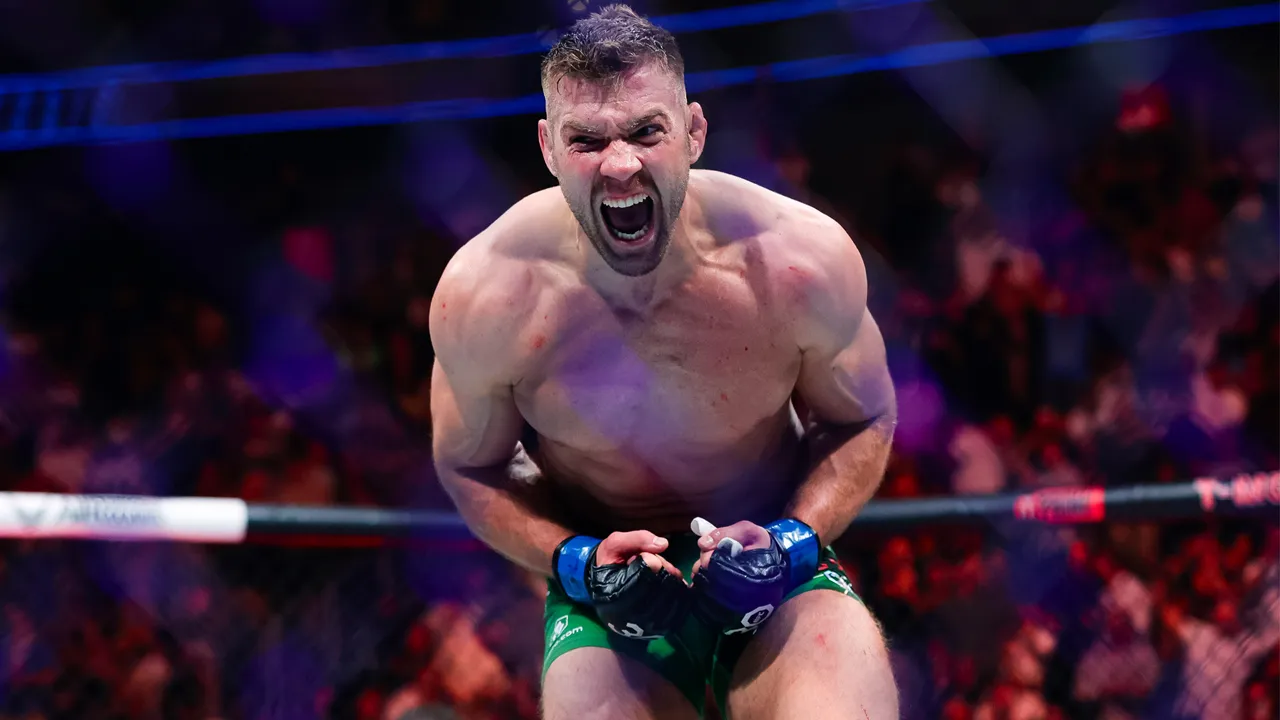
Will the UFC Step In?
As of now, the UFC has not issued an official statement regarding the controversy. However, given the growing scrutiny, it is possible that the organization will be forced to take a position.
If UFC President Dana White decides to act, potential outcomes could include:
-
A private conversation with Du Plessis about his association with Visser.
-
A stricter review of all UFC-affiliated coaching practices.
-
A possible ban or suspension of Visser from UFC events.
The final decision will likely depend on how much public pressure continues to mount.
Final Thoughts: Will Du Plessis Stand By His Coach or Save His Career?
The coming weeks will be crucial for Dricus Du Plessis. While his loyalty to Morne Visser is commendable, he must weigh whether defending his coach is worth the potential damage to his reputation, career, and long-term health.
If he distances himself from the controversy, he can continue to build his legacy as one of the top middleweights in the world. However, if he doubles down on his stance, he risks alienating fans, sponsors, and possibly even the UFC itself.
One thing is certain: This is a defining moment for Du Plessis, and how he handles it will determine the future of his career inside and outside the octagon.









